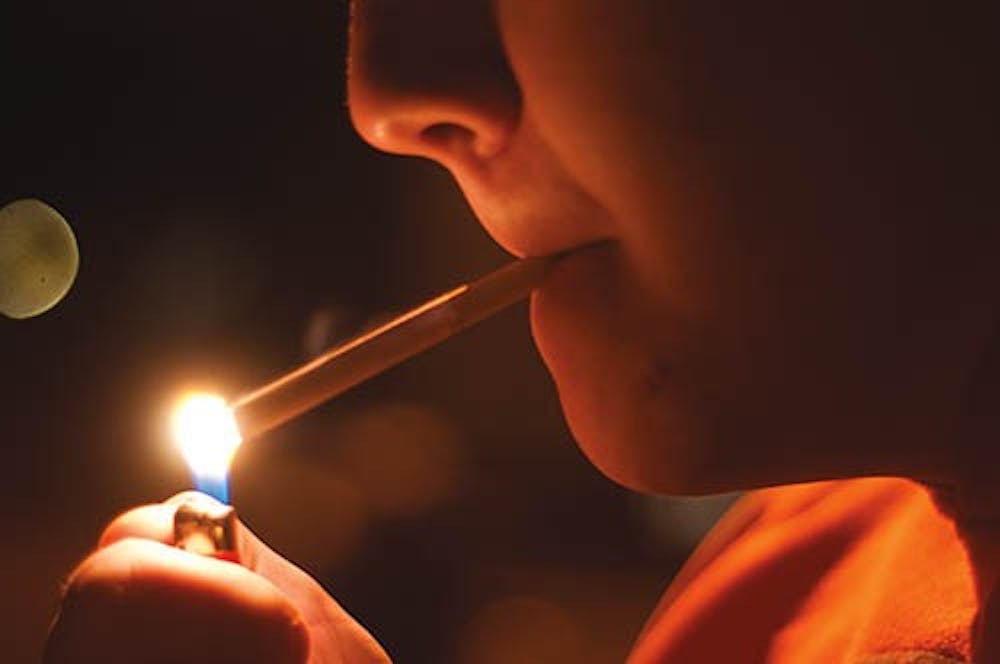Smokers will be restricted to their cars when they light up on Ball State’s campus beginning August 1.
The Board of Trustees approved a new policy on May 3 that will ban smoking and smokeless tobacco except in cars with windows up or during tailgating events.
The ban will be enforced by a fine of $100, double the current amount.
Kay Bales, vice president of student affairs, said the whole community is impacted by smoking, and this ban follows other actions the university has made in the past.
“If you look at where we are with our policy that exists today, that would, I think, be the next natural progression to the proposal that was approved by the trustees,” she said.
The main intent of the policy is to deter people from smoking on campus and reduce the amount of secondhand smoke, a goal senior history major Jake Ware said he thinks may not be met.
“It might just make smokers irritated that they have to go off campus or to their car to smoke,” Ware said. “I’m seeing more irritation as a result than actual deterrence from smoking.”
Junior elementary education major Margaret Gallina said she thinks the ban will help some smokers quit or lessen the amount of smoking they do.
“Banning smoking on campus is a really important step in creating a tobacco-free school,” she said.
Another intent of the policy is to lessen the health care costs of university employees, who account for a large portion of smokers on campus, Bales said.
Smokers account for 24 percent of employees at Ball State, as opposed to 15 percent of students.
“It’s mainly for the staff, but it’s affecting the students,” Ware said. He said it would be inconvenient for students who don’t have cars on campus.
“If you’re going to ban smoking for one group, you’re going to have to ban it for the other,” said Gallina.
Ware said he thinks the ban is jumping too far ahead.
“I get the whole ‘cleaner air, healthier people’ brand they’re trying to work with, but perhaps if they started trying to scale back the smoking sections, a few years down the line, campus could be smoke-free, but it wouldn’t be such a drastic change,” he said.
Gallina said the change will be hard for smokers, but the ban is keeping in line with Ball State’s wellness initiatives.
“Because smoking is a public health hazard to people around them,” she said. “I think it was a decision that had to be made.”
The policy was originally introduced in February and received mixed response. Bales said she worked with students to adjust it.
“Some of the things that are in the policy absolutely came out of conversations with constituent groups,” she said. “For example, the amount of fine in which someone would pay if they violated the policy is a direct result between conversations with students.”
The policy affects students, was influenced by students and, Bales said, should partially be implemented by students.
“It’s the responsibility of every member of our community to enforce any of our policies,” she said. “We all need to know our policies, whether it is this one or any other, and we all have a responsibility to make sure members of our community are abiding by those policies.”
Steven Williams contributed to this story.


